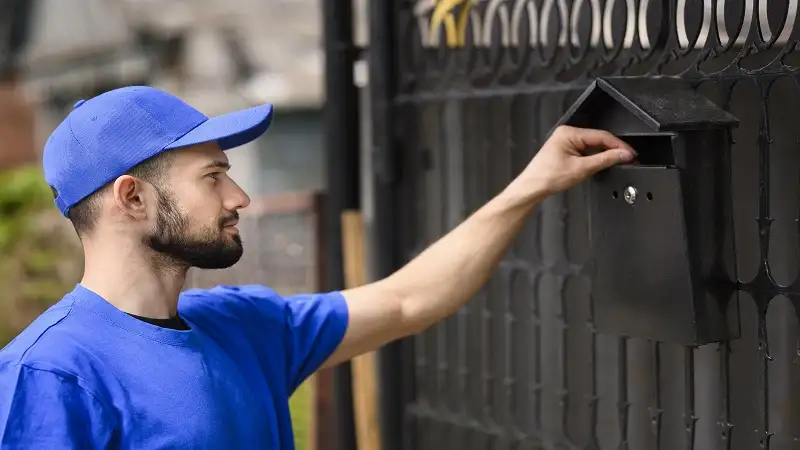A garage door is one of the most frequently used mechanical systems in your home, often opening and closing multiple times a day. Like any moving mechanism, it needs proper care to function smoothly, ensure safety, and last for years. For homeowners in Houston, the question often arises: How Often Should You Schedule a Garage Door Tune-Up in Houston? Expert Timing and Local Factors can make all the difference in maintaining efficiency and avoiding costly repairs.
In this article, we’ll explore the ideal tune-up frequency, factors that affect maintenance schedules, local weather impacts, benefits of routine tune-ups, and expert recommendations to keep your garage door in peak condition.
Why Garage Door Tune-Ups Are Essential
Garage doors involve multiple components working in sync—springs, cables, rollers, hinges, tracks, and an opener. Over time, these parts experience wear and tear due to daily usage, friction, and environmental exposure. Without regular tune-ups, your garage door may develop issues such as:
-
Noisy operation due to lack of lubrication
-
Misalignment of tracks leading to uneven movement
-
Frayed cables that could snap unexpectedly
-
Worn-out springs that compromise balance
-
Malfunctioning sensors creating safety hazards
Routine maintenance prevents minor problems from escalating into major repairs. It also ensures the door operates smoothly, quietly, and safely.
The General Rule: How Often Should You Tune Up?
In most cases, garage door professionals recommend a tune-up at least once a year. This yearly inspection includes checking all moving parts, lubricating components, tightening loose bolts, and ensuring safety mechanisms are functioning correctly.
However, frequency can vary depending on several factors, including how often you use your garage door, the local climate, and the type of door you own. This is where the importance of considering How Often Should You Schedule a Garage Door Tune-Up in Houston? Expert Timing and Local Factors comes into play—Houston unique weather and environmental conditions can significantly impact maintenance needs.
Houston’s Climate and Its Impact on Garage Door Maintenance
Houston is known for its humid subtropical climate, which means hot summers, mild winters, and plenty of moisture in the air. While pleasant for most of the year, these conditions can accelerate wear and tear on garage door components.
1. Heat and Sun Exposure
High summer temperatures can cause metal parts to expand, potentially leading to misalignment. Prolonged UV exposure can also fade and weaken door materials.
2. Humidity and Moisture
Moisture promotes rust formation on metal components like springs, tracks, and hinges. Over time, this can hinder smooth movement and weaken structural integrity.
3. Storms and High Winds
Houston experiences severe thunderstorms and occasional hurricanes. Strong winds can knock a garage door off track, while debris can damage panels and sensors.
Because of these environmental factors, Houston homeowners may need tune-ups more than once a year to prevent weather-related damage and maintain safety.
Signs That You Need a Garage Door Tune-Up Sooner
While annual tune-ups are standard, there are clear warning signs that you might need one earlier:
-
Unusual noises such as grinding, squeaking, or banging
-
Sluggish or uneven movement when opening or closing
-
Door imbalance, where one side appears lower than the other
-
Visible rust or frayed cables
-
Opener malfunctions or delayed response to remote controls
-
Door reversing unexpectedly, indicating sensor issues
If you notice any of these problems, don’t wait for your annual maintenance—schedule a tune-up immediately.
What Happens During a Garage Door Tune-Up?
A professional garage door tune-up is a comprehensive process designed to ensure every part of the system is working correctly. Key steps include:
-
Inspection of All Components – Checking springs, cables, rollers, hinges, tracks, and opener for wear or damage.
-
Lubrication – Applying high-quality lubricant to moving parts to reduce friction and noise.
-
Tightening Hardware – Bolts, nuts, and screws are secured to prevent loosening due to vibrations.
-
Balance Testing – Ensuring the door stays in place when lifted halfway to check spring tension.
-
Safety Sensor Alignment – Adjusting and cleaning sensors to ensure they detect obstacles properly.
-
Track Alignment – Making sure the door moves smoothly without catching or wobbling.
-
Opener Inspection – Checking motor performance, remote functionality, and backup battery (if applicable).
How Usage Frequency Affects Maintenance Needs
Not all homeowners use their garage doors equally. For example:
-
High-Usage Homes – Families who use their garage as the main entry point may open and close the door 8–10 times daily. In this case, biannual tune-ups are recommended.
-
Moderate Usage – If your garage door is used only a few times a day, an annual tune-up should suffice.
-
Low Usage – Vacation homes or rarely used garages may only require maintenance every 18 months, provided no environmental damage occurs.
When answering How Often Should You Schedule a Garage Door Tune-Up in Houston? Expert Timing and Local Factors, usage patterns must be considered alongside local climate conditions.
DIY vs. Professional Tune-Ups
Some homeowners attempt garage door maintenance themselves. While simple tasks like cleaning tracks or applying lubricant are safe, more technical adjustments—especially spring tension—should be left to professionals.
Why? Garage door springs are under extreme tension and can cause serious injury if mishandled. Professionals have the tools, training, and safety gear to perform tune-ups effectively and safely.
Benefits of Regular Garage Door Tune-Ups
-
Extended Lifespan – Preventive maintenance reduces wear and prolongs the life of components.
-
Improved Safety – Ensures safety sensors work properly to protect people, pets, and property.
-
Reduced Repair Costs – Fixing small issues early prevents costly breakdowns later.
-
Quieter Operation – Lubricated and aligned parts run more smoothly and quietly.
-
Energy Efficiency – Properly sealed doors help maintain indoor temperature and reduce energy bills.
Cost of a Garage Door Tune-Up in Houston
The cost for a standard tune-up in Houston generally ranges from $75 to $150, depending on the service provider and whether replacement parts are needed. While this might seem like an extra expense, it is far cheaper than major repairs or premature door replacement.
Expert Recommendations for Houston Homeowners
Based on climate, usage, and safety considerations, experts generally suggest:
-
Annual tune-ups for average households
-
Biannual tune-ups for high-usage or coastal storm-prone areas
-
Immediate inspections after severe weather events or noticeable performance issues
In other words, the safest and most cost-effective approach is to plan for yearly maintenance while staying alert to signs of trouble.
Final Thoughts
In summary, the answer to How Often Should You Schedule a Garage Door Tune-Up in Houston? Expert Timing and Local Factors depends on a combination of your usage habits, Houston’s weather patterns, and the age of your garage door system. While once-a-year maintenance is a solid starting point, high-usage households or those facing severe weather conditions may benefit from more frequent tune-ups.
Regular maintenance not only prevents breakdowns but also ensures your garage door operates safely and efficiently for years to come. For Houston residents, staying proactive means protecting one of the largest moving systems in your home from the region’s heat, humidity, and storms.
Pro tip: Mark your calendar for a yearly professional inspection, ideally before the summer heat or hurricane season, and address any issues immediately. This simple step can save you from headaches, safety risks, and unnecessary costs.

